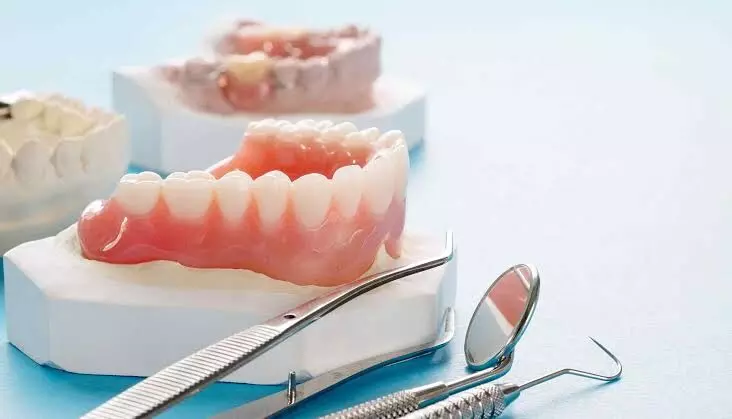In a first, researchers develop lab-grown teeth using patient’s own cells
The research marks an important advance in the broader field of regenerative medicine
By Anoushka Caroline Williams
Representational Image.
Hyderabad: A team of researchers from King’s College London and Imperial College London has made major progress in the development of lab-grown teeth using a patient’s own cells, bringing regenerative dentistry closer to clinical application.
Mimicking Natural Tooth Development
One of the longstanding challenges in dental regeneration has been reproducing the complex signaling environment required for natural tooth formation. Researchers have now developed a biomaterial that replicates these signaling conditions in a laboratory setting.
The new system allows for sustained, time-controlled communication between cells, encouraging them to behave like genuine tooth-forming cells. This slow-release system supports the differentiation and organization of cells into structures that closely resemble natural teeth.
A Potential Alternative to Fillings and Implants
According to Dr. Xuechen Zhang, one of the lead researchers, current restorative options such as fillings and implants “don’t fully restore natural tooth function” and can result in long-term complications. The goal of this project is to grow teeth that are fully integrated with the jawbone and surrounding tissues, reducing the risks of hypersensitivity, rejection, and limited durability.
Instead of relying on artificial materials, the approach involves using a patient’s own stem cells. These cells could potentially be placed into the alveolar socket—the area in the jawbone where the tooth was lost—for in situ development. Alternatively, entire teeth could be grown externally in bioreactors and later transplanted.
Implications for Regenerative Medicine
The research marks an important advance in the broader field of regenerative medicine, which aims to use the body’s cellular systems to repair or replace damaged tissues and organs. Though the technology is not yet ready for clinical use, the success of mimicking natural odontogenesis in the lab represents a clear step toward biologically engineered teeth.
As research continues, this method may one day replace traditional dental procedures, offering a long-term solution to tooth loss through natural regeneration rather than mechanical repair.